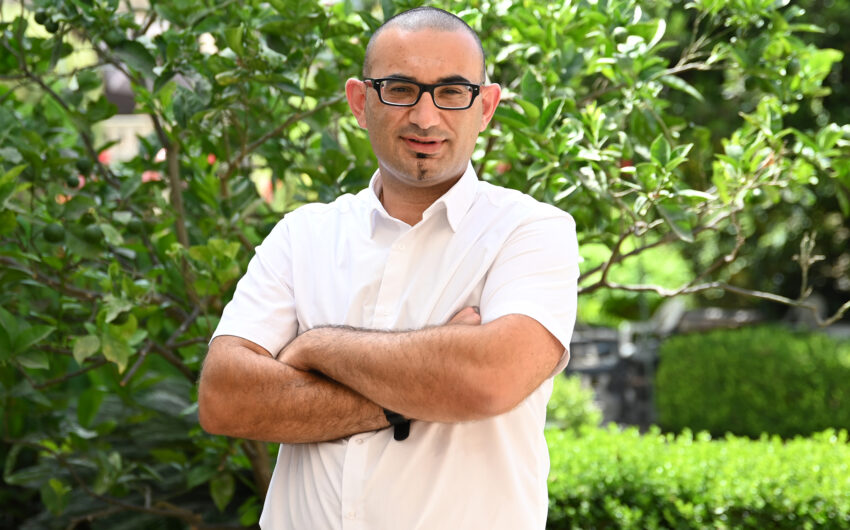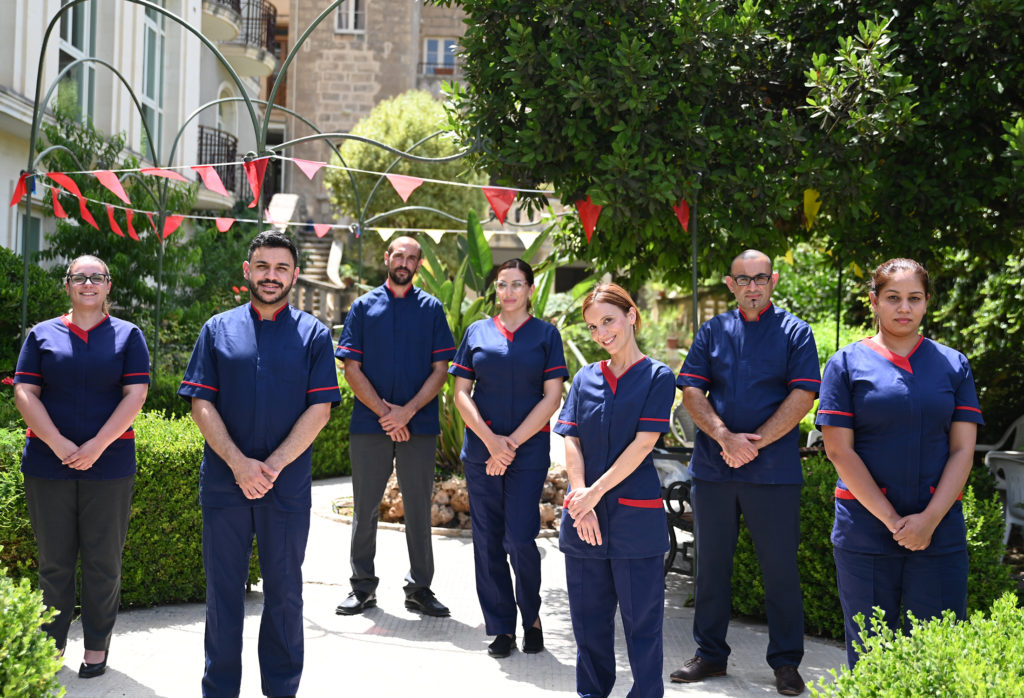
Never has the well-being of older persons been put to the test as much as during this unprecedented pandemic.
“COVID-19 has tampered with the dignity and quality of life of our residents, causing them suffering, loneliness and social isolation. This, in turn, has had a negative impact on their holistic wellbeing,” Noel says.
In January 2021, the Group kicked off a vaccination campaign to ensure that residents and employees in all CareMalta’s facilities were shielded from the coronavirus.
Spearheaded by Noel, a team of nurses worked round the clock with the aim of inoculating everyone within the shortest possible time during a deadly third wave.
“The vaccine was the key we needed to unlock the door in order to be able to move on, for the sake of our residents.”
Noel sits at his desk calmly and collectively, poised and level-headed, but you can tell he has a heart of gold when he talks about his nursing profession and being there for the most vulnerable.
“As nurses, we could see first hand what was happening around us and relate to the pain and suffering of our residents. As their wellbeing deteriorated, one of our biggest struggles was that their families could not be physically with them when they needed them most due to restrictions and measures.”

He discloses his biggest fear at the height of the pandemic, and the sad look on his face says it all – the dread of losing a resident directly from COVID-19.
“I understand that the frailty of an older person can lead to death, but every time it happened, it hurt. There were times when I could no longer take it.”
Now that 95 per cent of residents and employees in CareMalta homes have been vaccinated, Noel says the time has come to choose science over fear, find the right balance and open our doors.
“At the start of the pandemic we had access to very little data or information about this still unknown virus. But as the situation continues to improve and evolve, we now feel confident that evidence-based research can help us go a long way towards taking future decisions,” he explains.
Reflecting on the future of care in Malta, Noel expresses his wish to see a sector focusing more on quality rather than quantity.
“Sadly, we are seeing the opposite – huge residential facilities for the elderly with a ridiculously high number of beds keep sprouting all over the island. Rather than building more institutions, the country needs to follow international recommendations, work on a de-institutionalisation programme, consolidate active ageing, come up with more initiatives and carry out more research on long-term care.”
Noel believes that the country’s dementia strategy also needs to be adopted without further delay in order to cater for the individual needs of all older persons, without differentiating.
“From a policy point of view, the sector needs to seriously brush up on these needs and invest more in better resources and highly qualified professionals in the field.”
Are we just with older adults in today’s secular world? “I don’t think so,” is his prompt reply.
“The COVID-19 pandemic has accentuated ageism and the exclusion of and prejudice against older adults is still very rampant within society. I think we really need to work hard to truly see the person before old age.” ○
